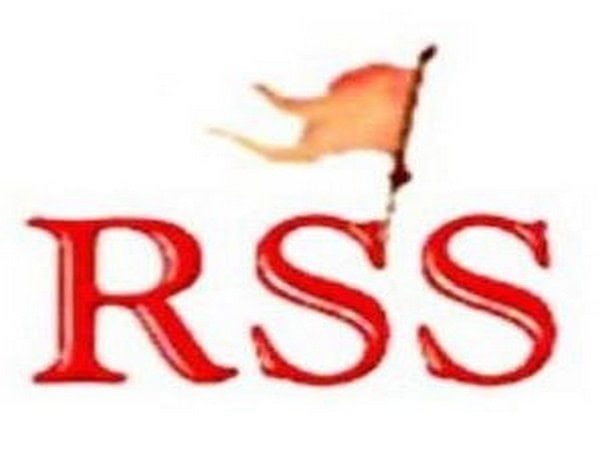The famous Hindutva ideology or the Rashtriya Swayamsevak Sangh (RSS) group as we know it, has a separate running constitution, apart from Our Indian constitution.
The existence of which and it’s full details are not known to most of its volunteers though it has been expanding and strengthening it’s roots to the core, slowly penetrating and deeply influencing the Indian Politics, government decision-making, though it claims to be “aloof from politics and devoted to social and cultural fields only”.
Though other affiliated groups are alleged to have penetrated the Indian society, RSS has widely been visible after it’s support it rendered to the victory of Modiji in 2014.
Authors Walter Andersen & Sridhar D Damle’s new soon-to-be-released book “RSS: A View to the Inside” have widely concentrated on how the group has influenced the victory and backed the BJP party and so on.
Well, how many of us know the fact that RSS group indeed has a separate constitution and is only known to its leaders and close observers? It has maintained to remain behind the closed doors until now but the group’s penetration into the society manipulating the generation into believing the ideologies is now more hidden.
Speaking to Hindustan Times, a senior functionary of the organization told that despite being drafted in 1949, “not many within the organization know the contents of the constitution” because it is “not publicised much”.
After Mahatma Gandhi’s assassination in 1948, the organization had conducted negotiations with the then home minister Vallabhai Patel to lift the ban. It was during that time the RSS group had written its separate constitution.
It had then pledged to explicitly state that the RSS would not involve itself in political activities and the organization’s activities would be devoted entirely to cultural work.
So are they really keeping up with their pledge of not involving in the politics?
The preamble of the RSS constitution states that owing to the “disintegrated condition of the country, it was considered necessary to have an organisation, to eradicate the fissiparous tendencies arising from diversities of sect, faith, caste and creed and from political, economic, linguistic and provincial differences, amongst Hindus; and to make them realise the greatness of their past.”
These RSS Swayamsevaks are free at will to join any party, institution, or front, political or otherwise, except such parties, institutions, or fronts which subscribe to or believe in extra-national loyalties.
When the author was asked why only little is known about RSS’s constitution, he said: “There is an ambivalence regarding the RSS constitution and most members have not read it. We had some effort to get a copy of the current 1972 constitution. As to why it is of such ambivalence within RSS, I think a major reason is that RSS operates on a face-to-face basis, and not through a set of written rules.”
Though the organization has refused to admit its role in politics, the book suggests the Sangh group has helped Janata Party to defeat the then PM Indira Gandhi in 1977 and repeated the same thing to overthrow Congress in 2014.
“A senior BJP figure told us that on only two occasions has RSS fully engaged in parliamentary elections: once in 1977 for the Janata Party and then again in 2014 for the BJP. This does not mean that the RSS has not been involved in other elections, but those two elections were the only ones in which it permitted its pracharaks and other high-level officials to take part in the campaigns,” the book says.
The book also speaks about Sangh’s opinions on other issues such as the Ram temple; foreign policy, particularly China; education; the BJP tying up with the People’s Democratic Party to form a government in Jammu and Kashmir and its collapse; campaigns on cow protection and ghar wapsi; and economic policy, especially labour reforms and foreign investment.
It is claimed to be playing an important role of a mediator between different affiliates.
The two authors Andersen and Damle had written a book – ‘The Brotherhood In Saffron: The Rashtriya Swayamsevak Sangh and Hindu Revivalism’, three decades ago which is widely considered the most authoritative book on the organisation.
When Alok Kumar, president of Vishwa Hindu Parishad, an affiliate of RSS, was asked about the organizations constitution he said Sangh does not focus much on the constitution because it is “run like a family and on trust.”
“We adhere to it and hold elections regularly (as is prescribed in the constitution), but RSS has grown organically. You will be surprised to know that the name of RSS and the importance of the flag were not discussed in the meeting where it was founded,” he said.
While BJP’s Rajya Sabha MP Rakesh Sinha said the RSS organisation has always maintained to stay on its own constitution.
“The critics of RSS have reduced themselves to propagandists and use selective facts to perpetuate their narrative that RSS is undemocratic and anti minorities. RSS, like Britain, which had in the past an unwritten constitution, evolved conventions and rules. Since late ’40s, it has a written constitution which has been mentioned even by critics like DR Goyal, but contemporary critics deliberately show ignorance.”

